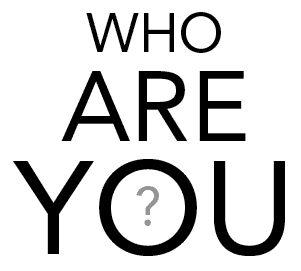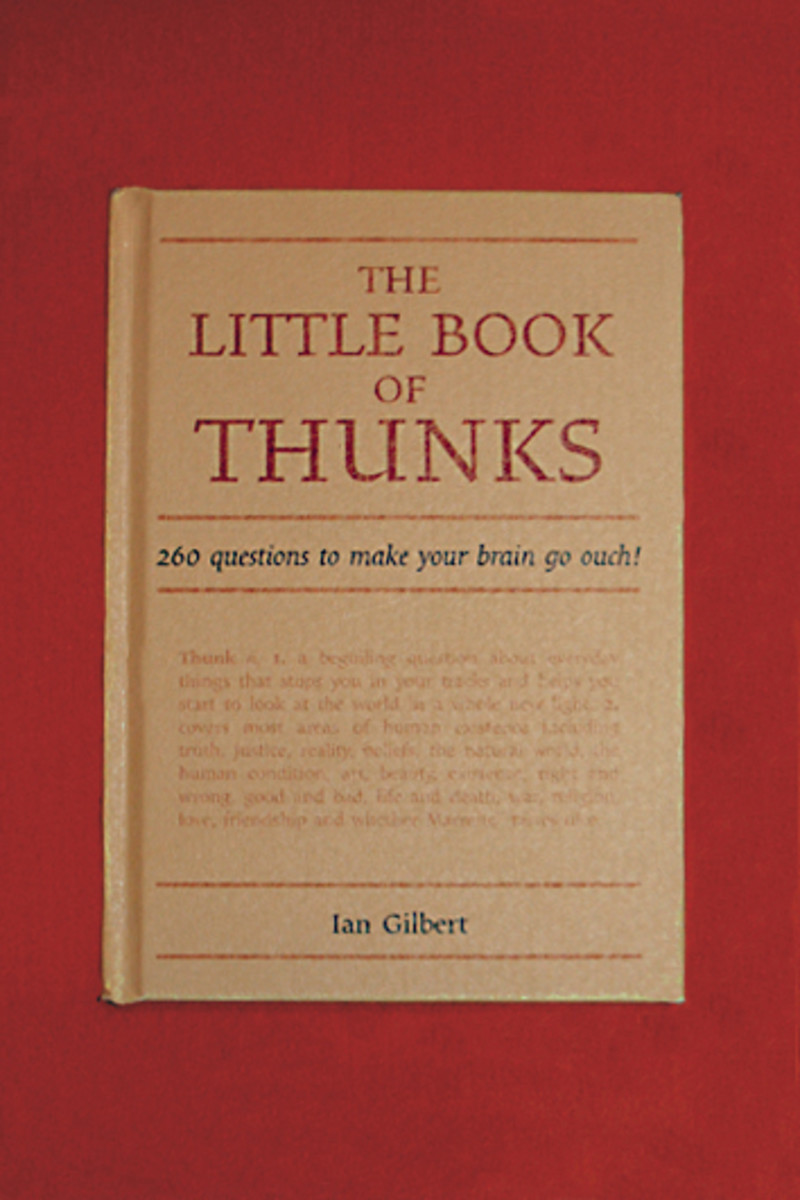Who Are You? : Fun Little Research

How You Defines Yourself Over The Question?
“Who Are You?”
Often we heard people asked. They want you to tell them who you really are. This is really simple question, is it? Or it is not?
Have you ever noticed how people can come up with different answer for that simple question? And sometimes they also come up with more than one answers.
“I am a Policeman.”
“I am a Husband.”
“I am an Atheist.”
“I am just a simple average man.”
Did you ever wonder why different people can come up with different answer for one simple question?



I put this questions above on the Forum "What you will answer to "who are you?" question and why?" the other day, Categorized under Cognitive Psychology. The goal is simple; I wanted to see how people will react on the question itself. Not what they will tell me about who they are, but how and why they choose those answers. Several people gave the answers which I already predicted before. The other, seem more into humor. Some seriously broader the topic itself, and some seem feel offended by the question.
Most of people agree that the answer of the question will be relating to the context; who is asking, why he is asking, when he is asking. And the answer will be relevant to it, in the way to help make the questioner more understand about what they want to know at that time, and (Someone added in the forum that) it is better if the answer we give limited only to the relevant one, because too much information will only cause unnecessary confusion.
“I am Freya Cesare.”
For the example. “Freya Cesare” is “Me”. The rest is only addition to make my identity become more personalized and easy to differentiate with other. But it is hard to accept that “Freya Cesare” is my identity, since it is not my real name. Its mean, if ‘Freya Cesare’ is part of my identity, it’s not really useful to define “me”.
To make it more personal then I will add,
“I am writer for quality content.”
This is one of many things that I did in daily. Not the primary one, but in the context which I am talking as the Hubber at HubPages or as online writer, then it is the most fitted addition. Of course when this question being asked by people who I meet at the school, more likely I will answer him with,
“I am a student.”
Which I still am; a mere student (Hhhh! T.T).
Names, occupations, activities: those often being used to defines someone when the question “who are you?” had taken place. And as the addition for full personal record; date of birth, addresses, name of parents and siblings also spouse and children, religion, education history, working experiences, and hobbies also interests, usually being added too so it can be complete. But do this list really is our identity?

I really don't think so. That list I did mentioned above is a list of tags or labels. This list indeed have ability to differentiated us with the crowds and make us easy to be find inside the ocean of human. But even with its uniqueness, the list is not able to explain what I really am as a person. I will only become the number of statistic, the record inside old paper, or just nothing more than physical presentation, which I believe I am more than any of those.
“I am human, a being.”
“I am a Muslim.”
“I am a social creature.”
“I am a woman.”
“I am a daughter.”
This is really who I am? Maybe yes, but only few part of it. Those are list of tags too. It is explaining our identity through occupations or group or the most exciting and most important things we do. These answers indeed are better than list of personal data (CV) only, because in these answers we can sense the tendency which possessed each one of them, but still, its not able to completely define who I trully am.
Self-Schema
Sometimes we do not understand who we really are, even when we believe we do.
In our life we created self-schema which is a particular set of beliefs or ideas a person created about himself, which will be used to to guide and organize information processing, mostly when the information is significant to self. It is a cognitive structure about self, cognitive generalisation about oneself, derived from past experiences. It is a description about who we think we are. Self-schema is not about who we wish we will become, but more about how and who we see ourselves within.
Because the tool the person used to understand himself are his own eyes, then of course the conclusion he created as the result can be really subjective because there always a strong tendency for self-schema to be maintained by a bias in what we attend to, a bias in what we remember, a bias in what we prepared to accept as true about ourselves. This subjectivity becomes the reason why people can have different Self-schema which sometimes far from what other people see in him.
Self-schema can be good and can be bad, depend on what kind of experience which had been created it. It can be close to the truth or can be far from it, depend on this person honesty in analyzed himself.
Bad or good sometimes is not the main problem. But if Self-schema really different with the true self, sometimes it can give problem. For some people, they will adapt and growth from it. Many people have great ability to cope with the situation while keeping their own personality untouched. But for some, it will caused conflict within himself or with others around him.
When people responding to him in the way this person believe not fit with who he is, more likely he will become disappointed. One or two times of disappointment maybe will only casually ignore. But if it caused too much disappointment, negative response will be form and this person will start building a canal between him and others as his defense mechanism.
Whether he will continue outing and make relation with others to fulfill his need as social creature while slowly adapt to the new way of relating which only available as far as his new canal make it possible to him, or he will simply turn his back from those things which was important to him but in the same time only caused him a disappointment. Now, I think, it is the time when person will become defensive and in the process he will slowly turn (or suddenly: depend on how hard he had been badly beat by his disappointment) into cynical, sarcastic, pessimists, or a bully type of person.
Identity : Sometimes Its Meaning Really Different With Our Own Understanding
Cognitive Psychology define the term of “Identity” refers to the capacity for self-reflection and the awareness of self (Leary & Tangney 2003, p. 3).
The words: “You” which then turn into “I” in the mind of person whose get that question is referred to Ego. Ego is representation of self, an individual existence, a product of so many subjective experiences a person had created while experiencing so many matters in this person’s entire life.
Even some cultural influences can cause variation in forms, the times of expression or the expression itself regarding to the question; often the question about Ego will raise awareness inside the person state of mind and make him or her become more focusing their attention to personal appearance at that time. Therefore, as the result; the answer that people will give always something which they really proud of at first or what they are believe the most.
“I am a cop.”
That is means this person really proud of his job and being a cop is the most important thing for him at that time. Remember, I underlined: at that time, because the answer can be vary as the experience keep changing and the sensitivity toward the meaning behind the question can be really affecting someone decision in giving answer.
“I am a man.”
More likely this is masculine answer from masculine person who really proud to become a man and to his masculinity, who never considering femininity is also part of men’s behavior; or in another possibility of case, he feels his manhood under a threat.
“I am God’s humble servant.”
Usually this person is religious one or he simply trying to make himself look religious. Need further observation to be able to check which one he really is.
“I am Muslim.”
or
“I am Christian.”
usually come up in cross religions conversation, or when someone thought his or her religion under big question by those who want to know who she/he really is as the follower of one particular religion.
Just by analyzing those 3 answers above, we can see that most answers about “I” usually related to self-schema of the person, which means sometimes, not real objective self of the person.
The most complete answer had been given by 2 of our fellow Hubbers. Both have different way of explanations but have similar point in the end, which are:
“Me” is what I believe who I am. Therefore will become guide for what I do in every step of my way.
How I will answer the question about who I am really depend on the context, but it do not mean it is who “Me” really is, but only a chosen response to the question which given by significant other or given under special circumstances, so it can fit with the questioner need.
In the end, easy to conclude, “Who are you?” question rarely will give us the real identity of the person as the answer, even when this person being honest to us.
“Who are you?” It is a simple question indeed, but turned out, the answer not that simple at all. And from your answer, your core can be read and analyze.
Have a nice day, everyone! ^_^
Special thanks to fellow Hubbers who already involved in this Forum. Thank you very much!








